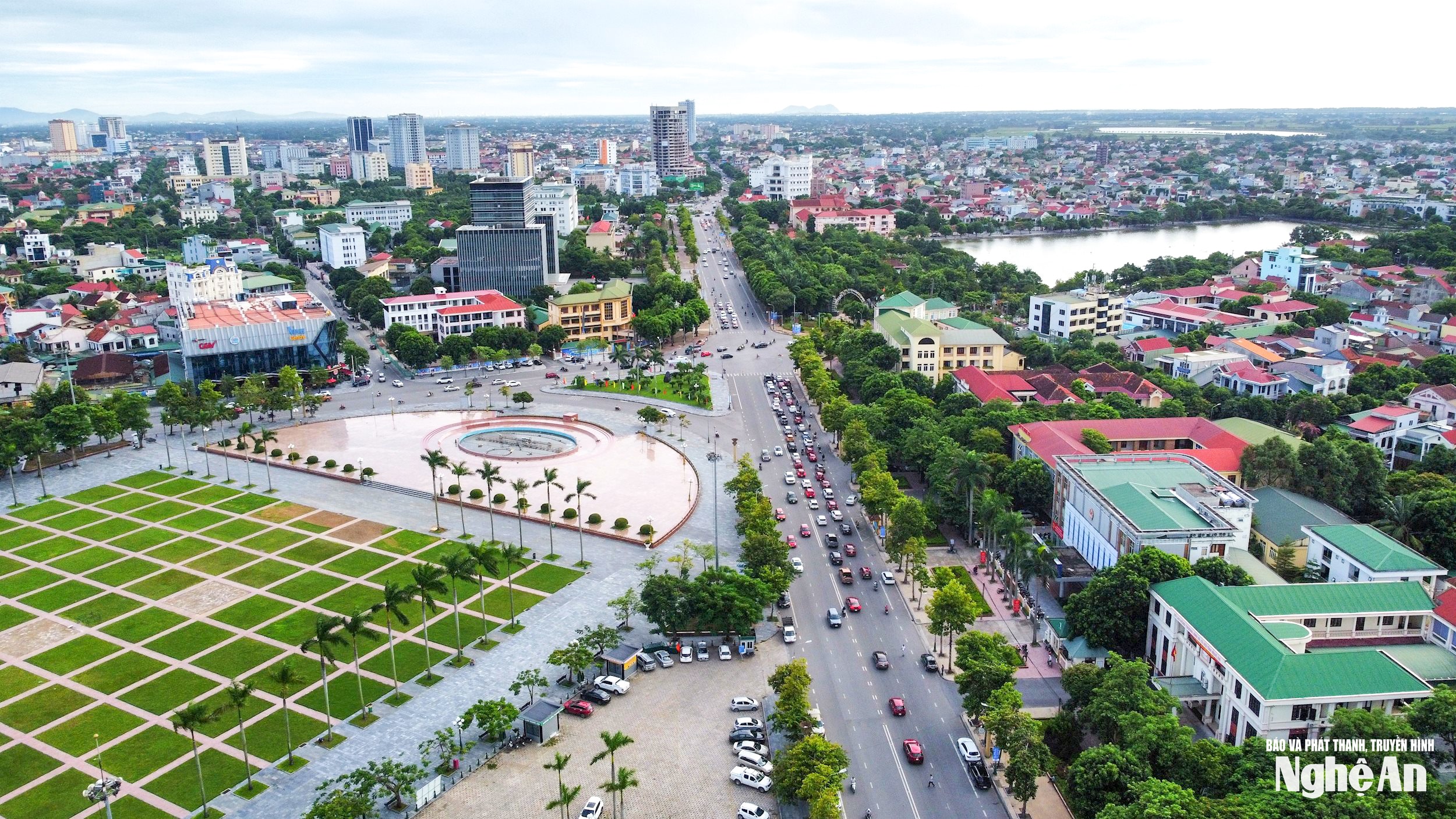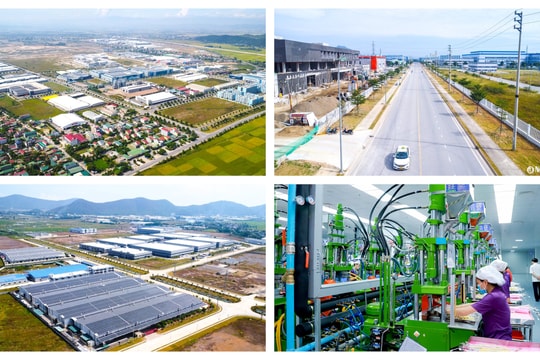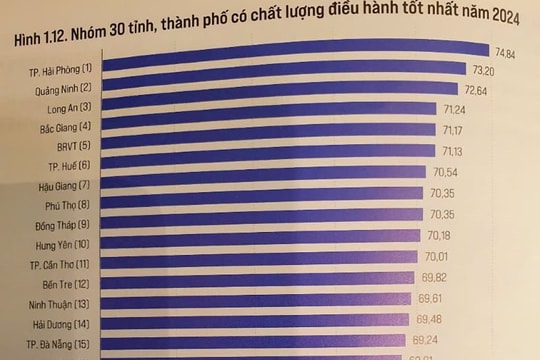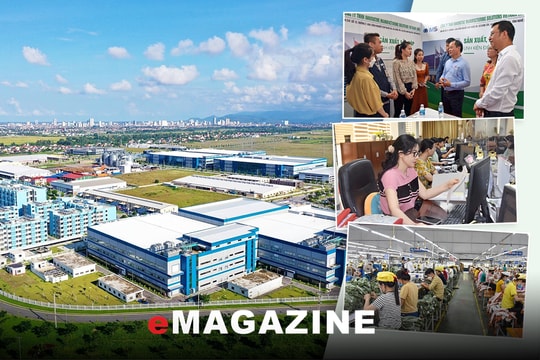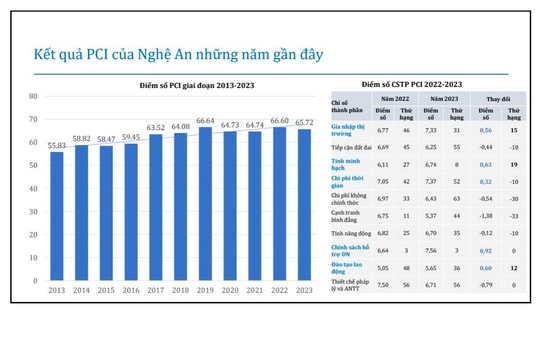Removing bottlenecks, improving the Provincial Competitiveness Index (PCI) - Final episode: Better management and service
Improving provincial competitiveness is not only about improving PCI rankings, but more importantly, about improving the investment environment, management capacity and service spirit. Nghe An identifies PCI as the goal and driving force for innovation, towards a creative government, accompanying businesses, meeting the satisfaction of people and investors.
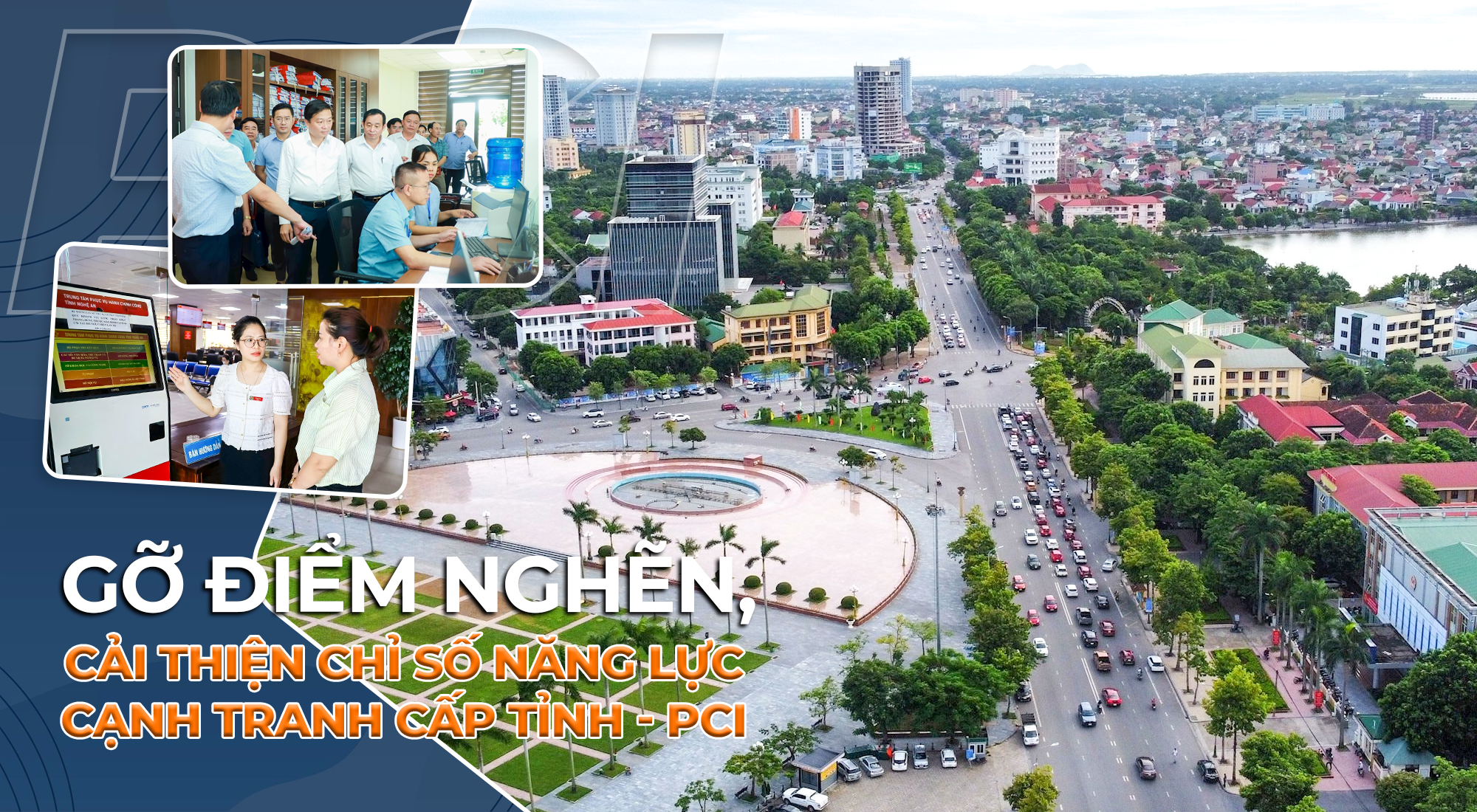
.png)
Thanh Le - Pham Bang• July 8, 2025
Improving provincial competitiveness is not only about improving PCI rankings, but more importantly, about improving the investment environment, management capacity and service spirit. Nghe An identifies PCI as the goal and driving force for innovation, towards a creative government, accompanying businesses, meeting the satisfaction of people and investors.

From July 1, 2025, the two-level local government model will officially operate in 34 provinces and centrally-run cities. This is a policy and the right step to reduce intermediate levels, shorten the processing procedures and bring the government apparatus closer to the people, better serving the needs of people and businesses in accessing administrative procedures.
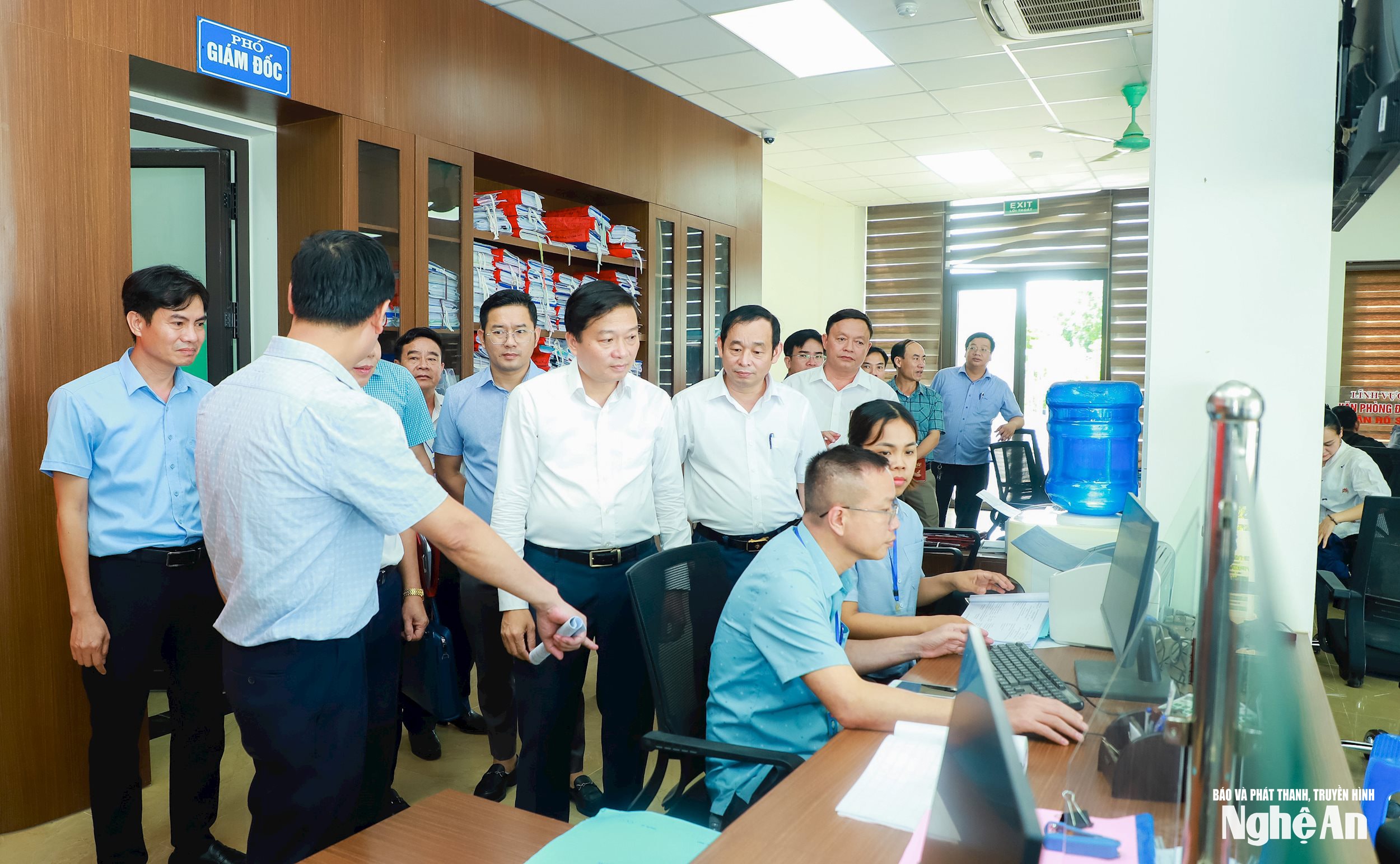
The reorganization towards direct decentralization from the province to the commune aims to reduce procedures, save time and costs for businesses - especially in areas such as land, resources, sub-licenses and business registration. These are also areas where businesses often encounter difficulties when having to go through many levels, prolonging processing time and incurring unofficial costs.
At the same time, increasing the application of information technology and promoting comprehensive digital transformation will help the two-level government improve its management and operation capacity effectively and transparently to better serve the people and businesses. This will create momentum for businesses, which is one of the factors to reduce informal costs.
However, for this policy to be truly effective, many businesses believe that it is necessary to pay due attention to preparing infrastructure, institutions, human resources and implementation tools at the grassroots level. When the commune becomes the direct focal point, each commune official must proactively grasp regulations, laws and administrative procedures to guide and support people and businesses accurately and promptly.
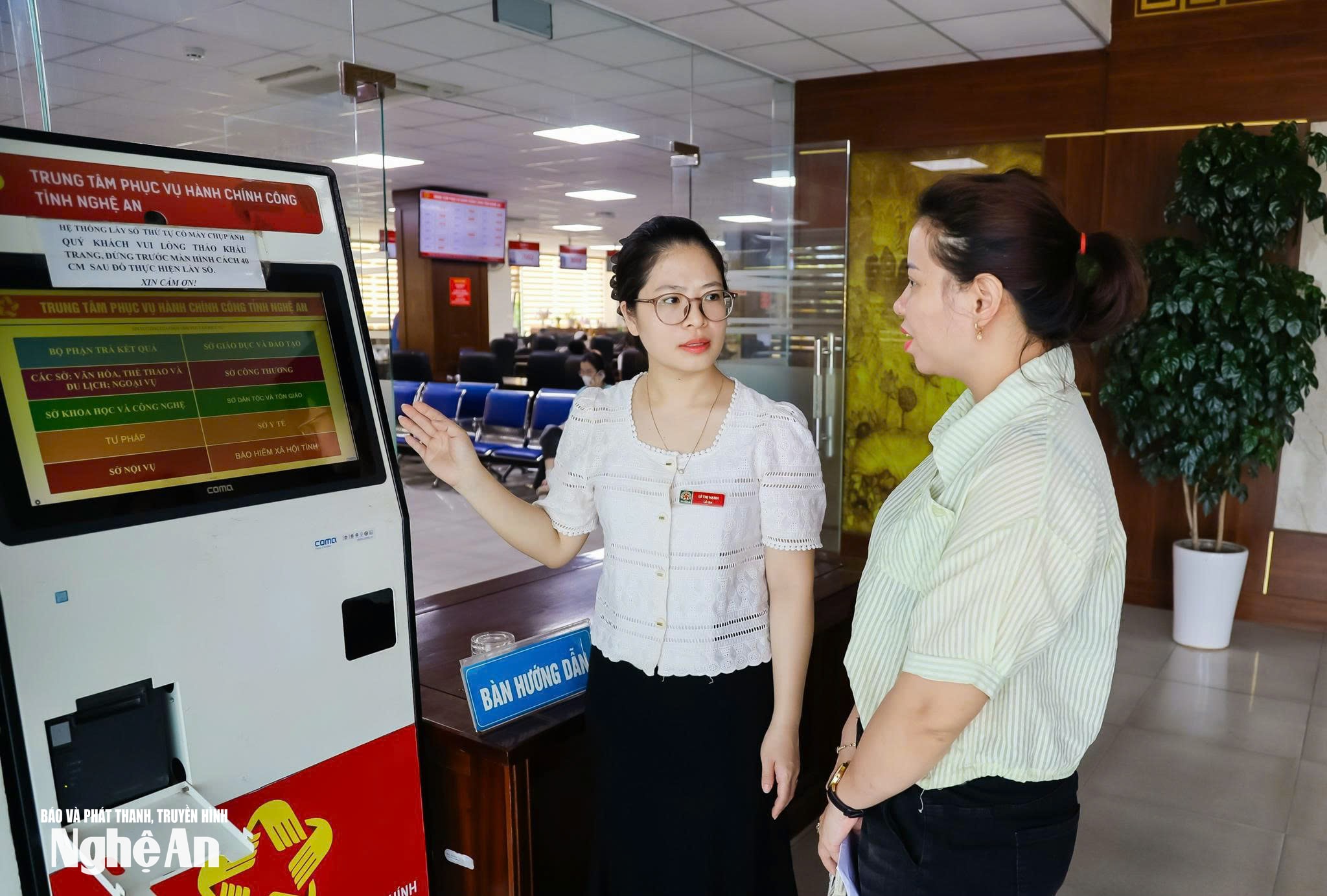


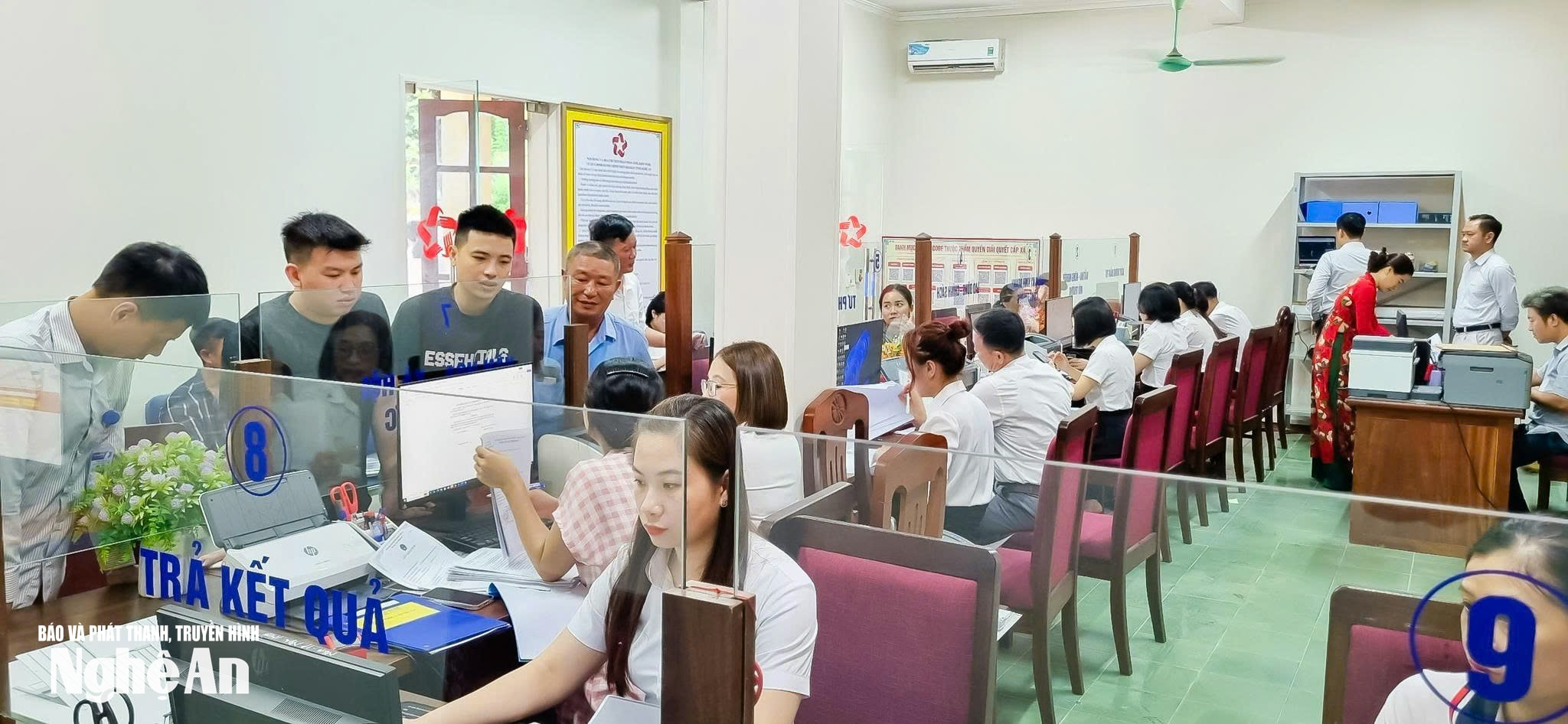
In reality, the capacity of grassroots cadres is not really uniform, especially in the context of policies and legal regulations - especially on preferential industries and occupations, and increasingly diverse and complex business conditions. Without proper training and regular updates, commune cadres may encounter confusion when handling administrative procedures for businesses, leading to delays or lack of uniformity in application.
Operating a two-level government, many cadastral, agricultural, construction and environmental civil servants assigned to the Public Administration Service Center of communes face many pressures: large areas, exponentially increasing workload, and the requirement to resolve administrative procedures without delay... "Difficulties arising in practice are easy to see, but the team of cadres and civil servants at the commune level cannot neglect to improve their expertise and skills, access new technology, meet the requirements of assigned work, and be steadfast in the face of new requirements and tasks. Personally, I think the most important thing is the awareness of serving the people; need to maintain a dedicated and civilized attitude, taking the satisfaction of people and businesses as the goal" - Ms. Tran Thi Minh, cadastral civil servant of Nghi Loc commune, Nghe An shared.
Through on-site inspection and understanding of the situation at the grassroots level, Chairman of the Provincial People's Committee Le Hong Vinh said that the commune level is facing many challenges and pressures in handling administrative procedures when the local government organization model is 2-level. Therefore, to ensure that the reception and handling of administrative procedures for people and businesses in the new model is smooth, effective, and in line with the orientation of "being close to the people, serving the people", departments, branches and sectors must proactively strengthen training and fostering to improve the professional qualifications of cadres, civil servants and public employees; especially commune-level cadres and civil servants in the form of "holding hands and showing work".
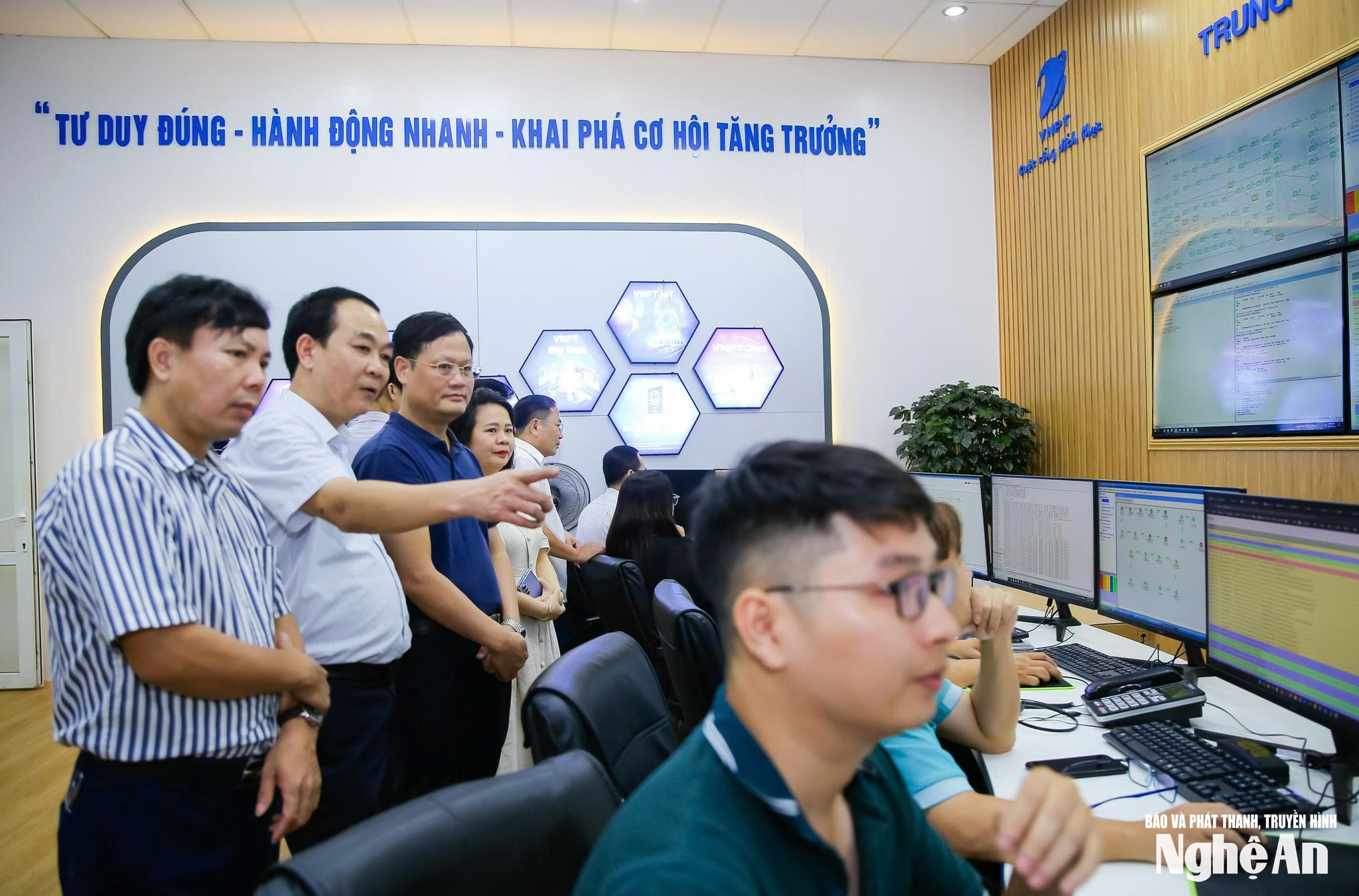
According to businesses' assessment, besides changes in administrative procedures from the province to the grassroots level to gradually support businesses in the production and business process, there are still some limitations that need to be overcome.
Mr. Nguyen Dinh Sinh - General Director of Minh Anh Garment Joint Stock Company said: To improve the PCI Index of Nghe An, it is necessary to focus on important component indexes, but the scores and rankings have decreased. In particular, Nghe An must focus more on the quality of administrative reform, which must be substantial and in-depth. To reduce time costs, departments, branches and localities must be proactive and flexible in handling administrative procedures for businesses/investors, not shirking responsibility in performing public duties. At the same time, focus on improving the quality and efficiency of business support services. Along with that, continue to improve the quality of human resource training; ensure human resources meet the development needs of businesses. The province needs to develop a mechanism to create reserve land funds, create clean land funds managed by the State and create conditions for investors to easily access land and speed up project implementation progress in a public and transparent manner.
Sharing the same view, Mr. Dau Anh Tuan - Deputy General Secretary, Head of the Legal Department, Vietnam Chamber of Commerce and Industry VCCI said: First of all, the province must further strengthen administrative reform, reduce unnecessary administrative procedures. To increase fair competition, the province needs to provide more practical support to small and medium enterprises, especially micro enterprises, in training and market access. And for Nghe An enterprises, it is necessary to be proactive and effectively receive support from the government. How can Nghe An not only succeed in attracting foreign investment, but also succeed in attracting domestic private investment projects, especially large domestic private projects.

With the goal of achieving a PCI index in the top 15 of the country by 2025, Nghe An is making efforts to synchronously and effectively implement solutions. Along with promoting administrative procedure reform, the province regularly organizes dialogue conferences and contacts with businesses and investors to promptly grasp information and resolve difficulties and problems related to the process of investment and business implementation in the locality. The above efforts show the high determination of Nghe An province's leaders in solving the problem of unofficial costs. Issuing specific instructions, along with strict handling measures and calling for support from the business community, are necessary steps to build a truly equal, transparent and effective investment and business environment.
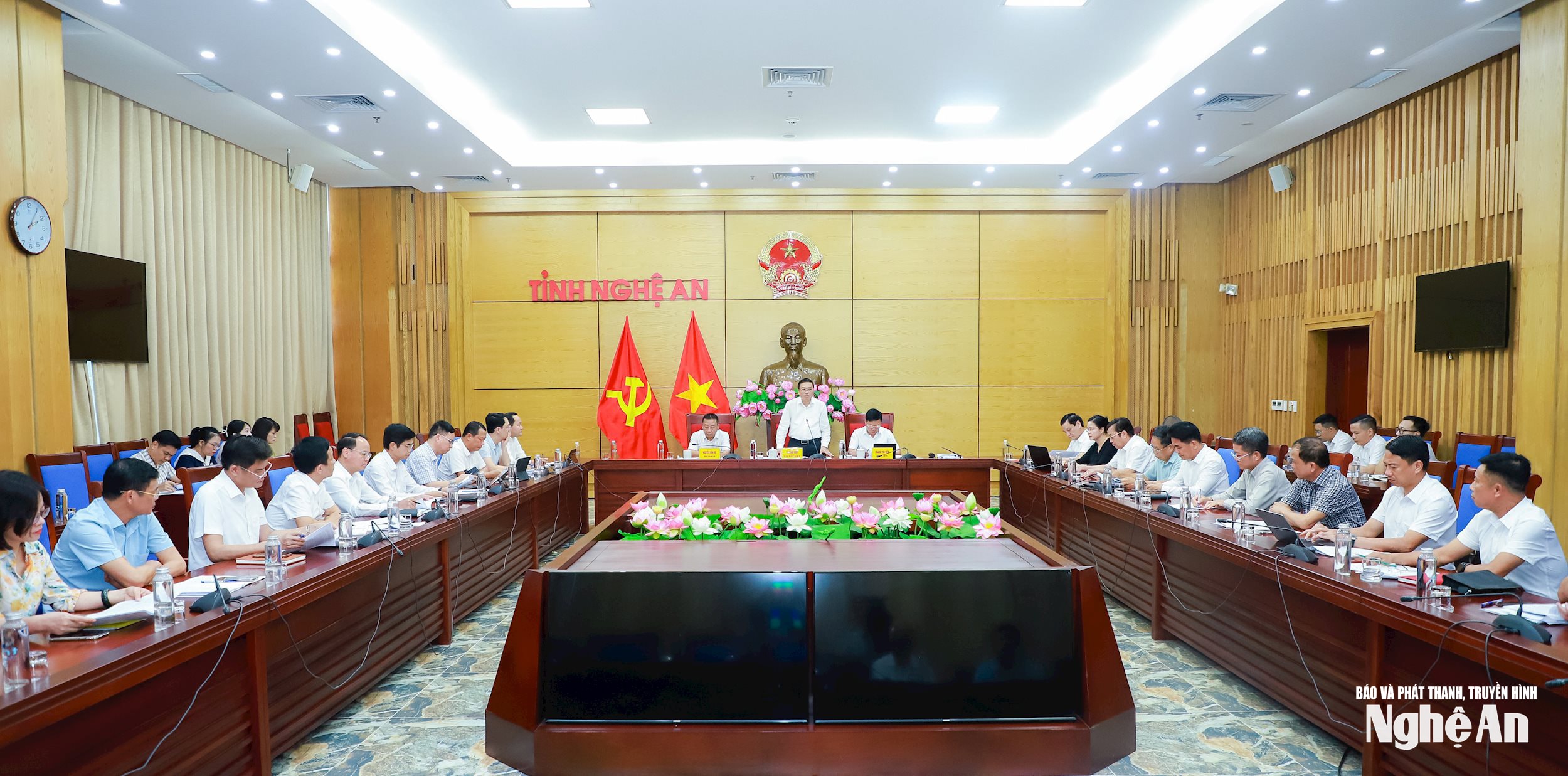
Concerned about the PCI index results of the province in recent times, Provincial Party Secretary Nguyen Duc Trung emphasized at many forums that in order to improve the PCI index, the province and departments, branches and localities must clearly define responsibilities, especially the leaders. Consistent with the viewpoint of "Government serving the people, accompanying businesses" with the strategic vision of "Substantial breakthroughs in improving the investment and business environment"; correctly assessing the situation, setting the right goals and having specific solutions for implementation, attaching specific tasks and responsibilities to specific organizations and individuals according to the motto of clear people, clear work, clear progress, clear responsibilities and clear results. Each cadre, civil servant and public employee should voluntarily take responsibility for the development of the province, to create a truly open and favorable investment and business environment for businesses and investors, thereby improving the PCI index.

The private economy has always been considered the driving force for the country's development. In Nghe An, private enterprises are making great contributions to the State budget, creating jobs and promoting economic restructuring in a positive direction. However, in addition to positive results, the private economic sector faces many challenges, especially in the context of deep integration and current global economic fluctuations. In order to support businesses and remove difficulties, many mechanisms and policies have been issued. In particular, Resolution No. 68-NQ/TW on private economic development is expected to create new momentum, unlock resources and bring breakthroughs to this potential economic sector in Nghe An.
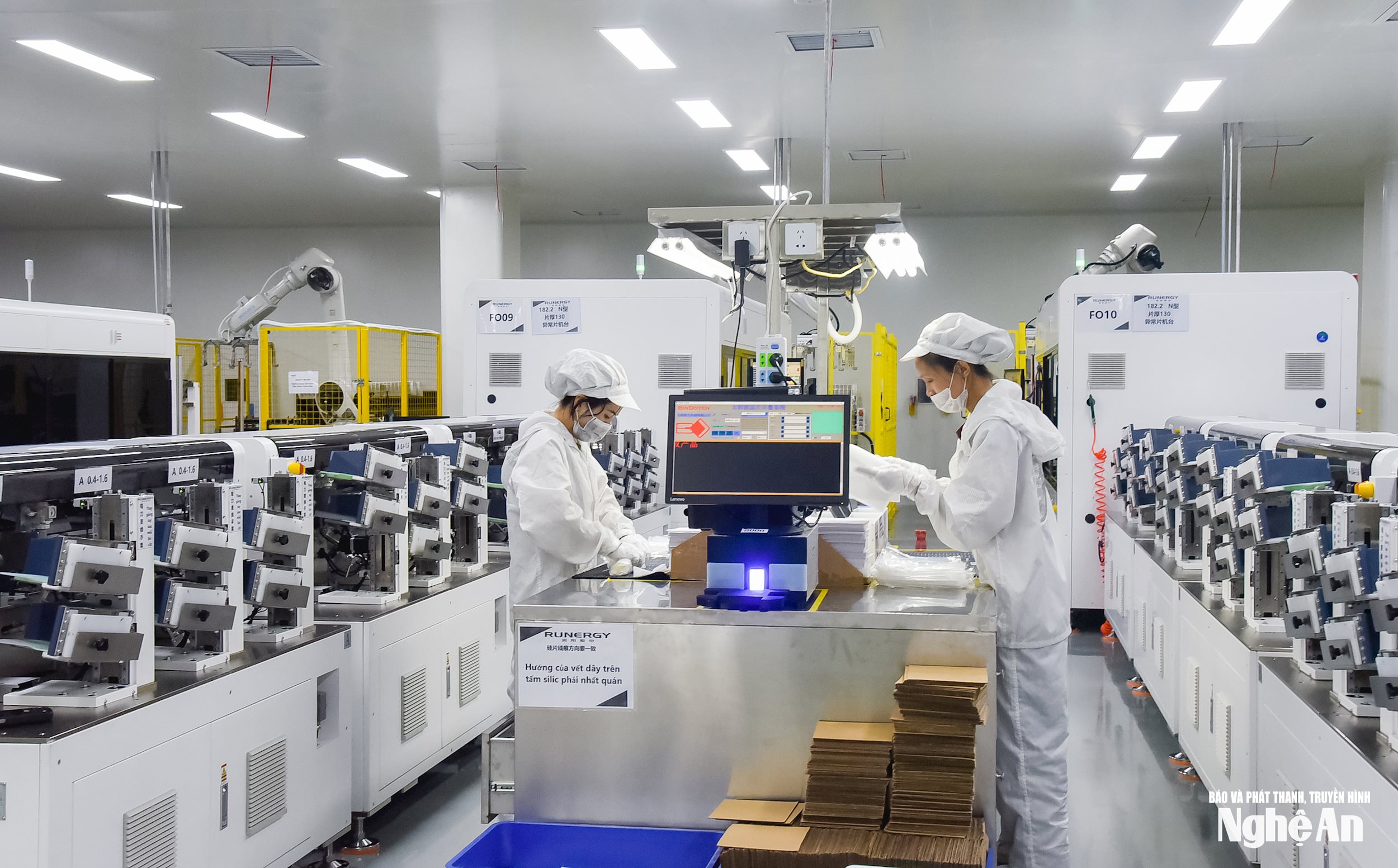
Expressing his expectations of Resolution 68 -NQ/TW for business development, Mr. Tran Anh Son - Vice Chairman of the Provincial Business Association, Chairman of the Provincial Outstanding Business Association said: For Nghe An, Resolution 68 not only has an orientational meaning but also opens up opportunities to review long-standing "bottlenecks" such as: Access to land, credit, quality of human resources and investment procedures. We, the business community, believe that the province will implement Resolution 68 very specifically, finding all solutions to remove difficulties and obstacles from the past to the present and in the future for Nghe An's businesses to develop.
In the coming time, Nghe An province is determined to continue to strongly and substantially improve the investment and business environment, strengthen foreign affairs activities, promote investment, support and develop enterprises. Direct all levels and sectors according to their functions and tasks to continue to focus on removing difficulties and obstacles, especially site clearance, supporting investors who have been implementing projects in the province to complete procedures and documents and soon put the projects into operation.
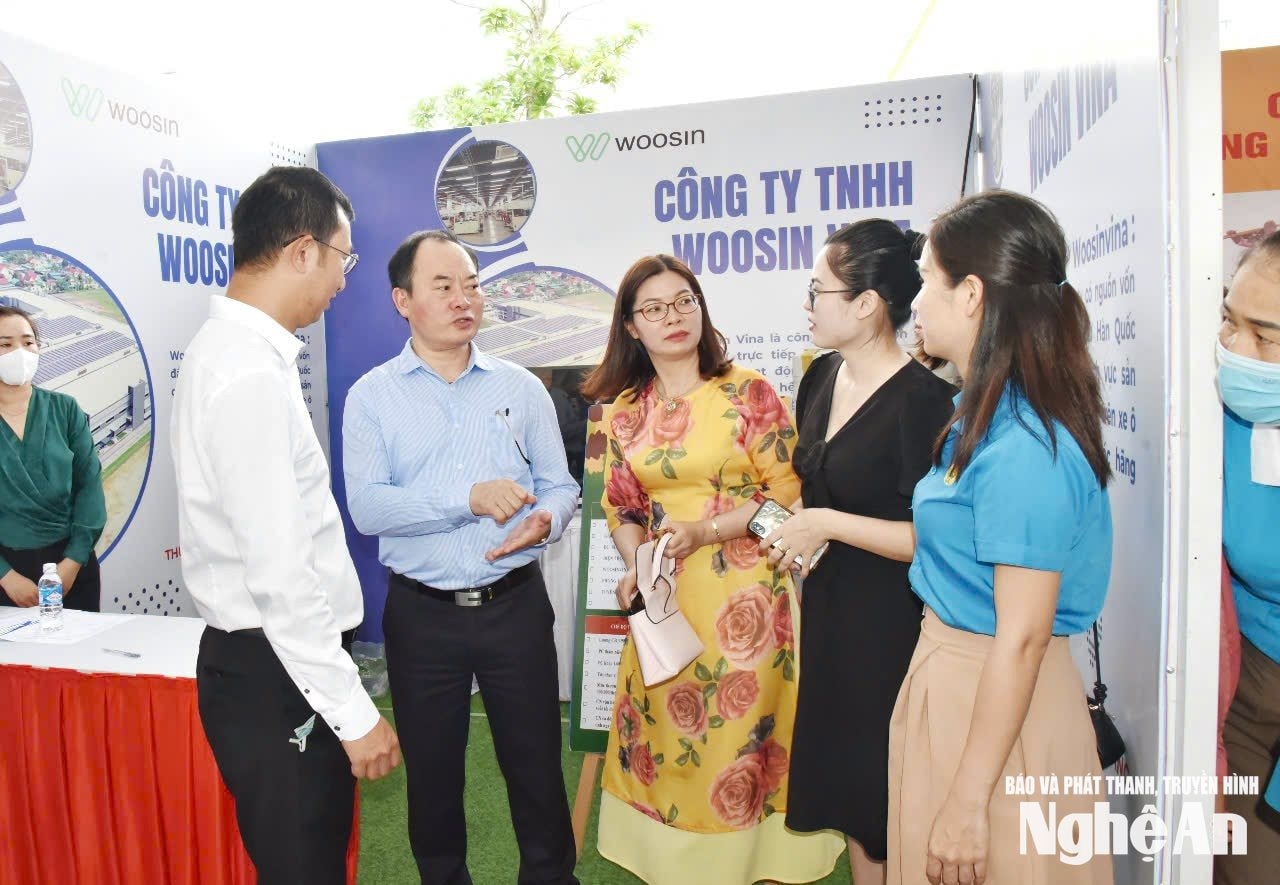
At the same time, effectively implement the Plan of the Provincial Party Committee on implementing Resolution No. 68-NQ/TW dated May 4, 2025 of the Politburo on private economic development, Resolution No. 66-NQ/TW dated April 30, 2025 of the Politburo on innovation in law making and enforcement to meet the requirements of national development in the new era. Strongly promote production and business activities, private investment, attract FDI, especially large projects in the Southeast Economic Zone and industrial parks, put projects into operation soon in 2025 to supplement production capacity; urge site clearance, infrastructure investment in industrial parks (VSIP, WHA, Tho Loc, Hoang Mai 1,2...) to prepare the ground to attract investment in new projects.
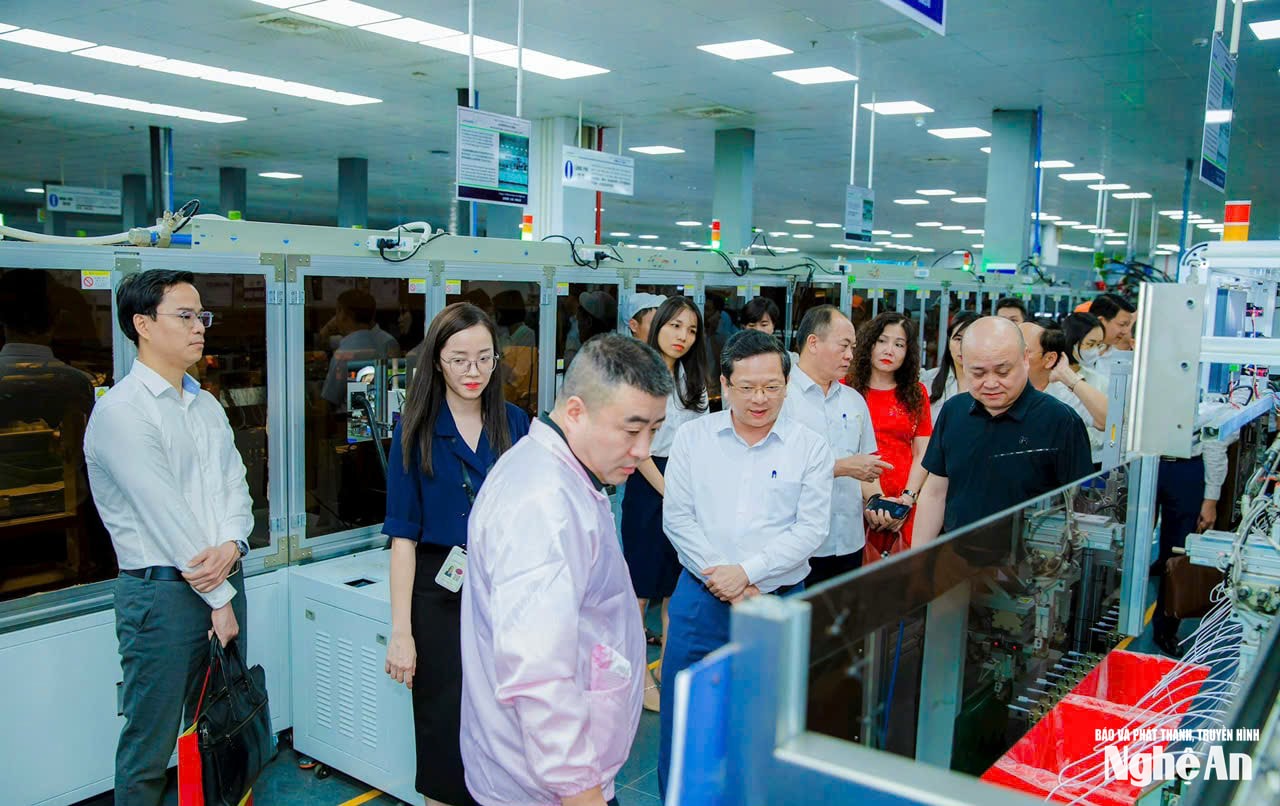
According to Mr. Nguyen Tien Tri - Head of the Southeast Economic Zone Management Board, with the role of a core unit in attracting investment and managing industrial parks for many years, the Southeast Economic Zone Management Board has been very active in supporting businesses, especially FDI enterprises investing in the area, from supporting the exploration of investment opportunities to handling administrative procedures and coordinating support for site clearance and labor recruitment. To solve the problem of human resources, improve the labor training index, and contribute to improving the PCI Index of the province, the Board has proactively advised the Provincial People's Committee and coordinated with the Department of Labor, War Invalids and Social Affairs (now the Department of Home Affairs), and other branches to advise the Provincial People's Committee to submit to the Standing Committee to issue Directive 33-CT/TU (January 8, 2025). In the coming time, the Board will continue to coordinate with all levels of branches and businesses to be able to orient vocational training work closer to the reality in the area where businesses need to recruit. Thereby, promoting the improvement of the quality and effectiveness of vocational training, meeting the requirements of the labor market, focusing on suitable occupational groups, creating sustainable jobs for workers.
With existing strengths and the determination to innovate and build a service-oriented, streamlined, efficient, effective and efficient government, and continue to improve the investment and business environment, we believe that Nghe An province will continue to be an attractive destination for investors, helping Nghe An to break through in rapid and sustainable socio-economic development in the new era.
